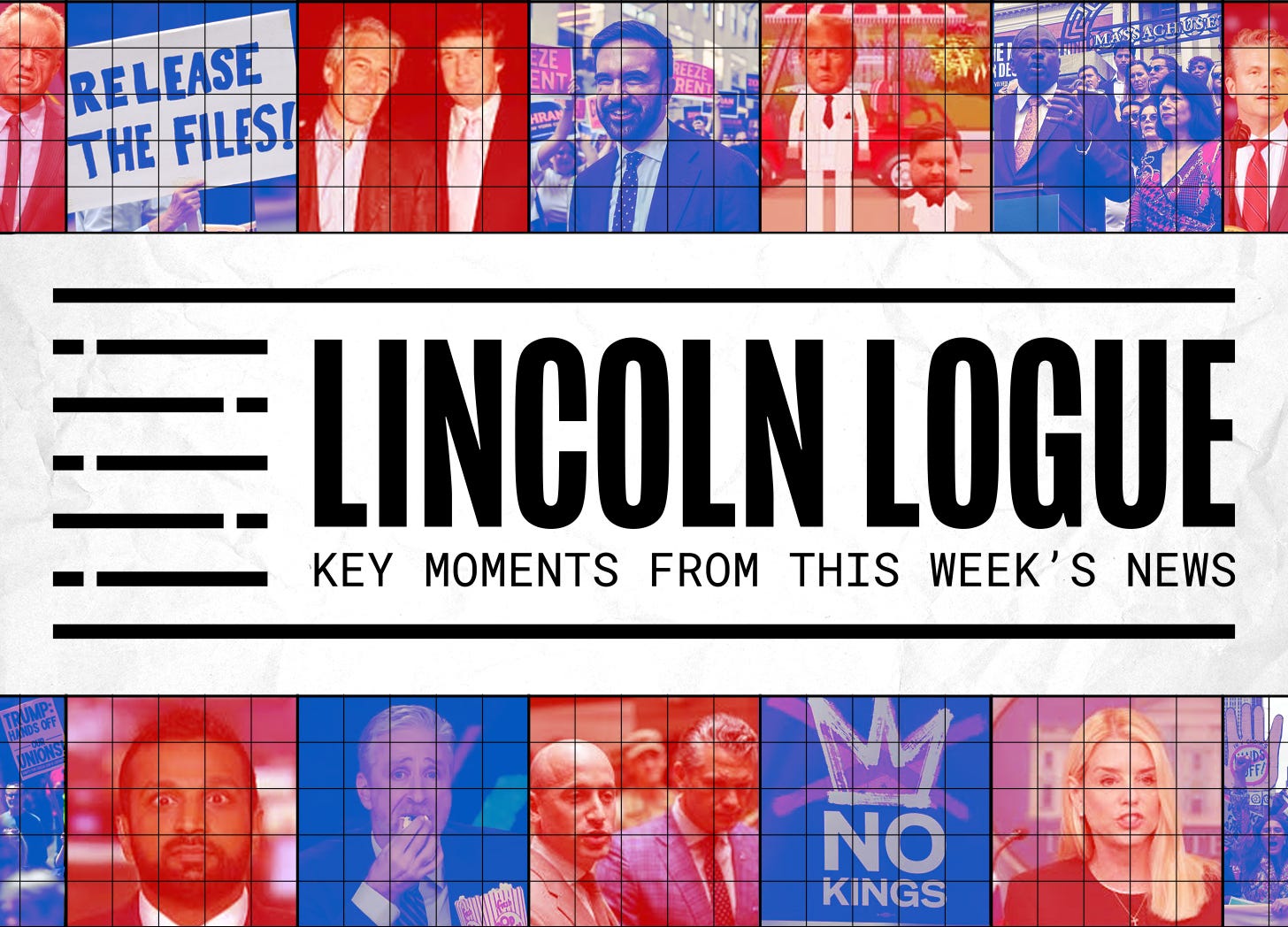The Lincoln Logue | The Dictator Pitch: Focus-Grouping America
Where graffiti patrol doubles as martial law and funerals become propaganda.
If you thought Trump was still coy about the “dictator” label, think again. This week, he decided to stop denying it and start test-marketing it, like a soft drink launch for authoritarianism. His pitch: D.C. is “hell,” and if saving it requires armed troops repainting graffiti, well, “a lot of people” are apparently fine with that. Never mind that those “lot of people” exist mainly in his head or his Truth Social mentions — the point is to see how much tyranny he can sneak in while calling it “common sense.”
While the soldiers carried M4s and trash bags, Trump’s White House picked a new enemy: wind turbines. He froze a Rhode Island project that was basically ready to flip the switch, and moved to cancel another in Maryland, citing mysterious “national security concerns” no one is allowed to hear about. Translation: MAGA energy policy is coal forever, wind never. ISO New England is panicking about grid reliability for 15 million people, unions are fuming about a thousand jobs gone, and Orsted’s stock tanked. But in Trumpworld, clean energy is woke.
And if there’s one thing this week made clear, it’s that everything can be bent into loyalty theater. A migrant wrongly deported once already is now trapped in an absurd legal limbo while Trump’s DOJ tries to ship him to Uganda — a country he’s never even been to. The Air Force reversed itself to give Ashli Babbitt full military honors, elevating a Capitol rioter to martyr status. And then came the Fed, where Trump tried to fire Governor Lisa Cook on phantom allegations because she wouldn’t cut rates on command. From troops on the Mall to loyalty tests at the central bank, the theme is the same: grab more power, dress it up as patriotism, and dare anyone to call it what it is.
Welcome back to The Lincoln Logue. Let’s get into the week that was.
Monday, August 25 — Trump Tests The American Dictatorship Waters
▌Dictatorship, but only if the numbers come back good?
Trump didn’t just shrug off being called a dictator — he decided to market-test it like a new flavor of Diet Coke. “A lot of people are saying, maybe we’d like a dictator,” he mused, turning authoritarianism into a casual suggestion rather than a national emergency. It’s the rhetorical equivalent of slipping a loaded gun on the table during dinner and calling it a conversation starter. He framed critics as “sick” for worrying about the republic, while insisting he’s just a “man of great common sense.”
To prove he wasn’t joking, he signed an executive order creating “specialized” National Guard units designed to police American cities. These units will exist in every state, trained and resourced for “public order issues” and kept on standby for nationwide deployment. Governors are supposed to control the Guard, but Trump’s move pushes authority toward the Oval Office, creating a president’s personal rapid-reaction force. And when you remember that Trump openly floated sending troops into Chicago without a governor’s request, it’s clear he sees these units as campaign props as much as security assets.
Even the aesthetics are sinister in their banality. In Washington, Guard members now patrol the National Mall carrying sidearms and M4 rifles, while also scrubbing graffiti and hauling driftwood from monuments. The Pentagon insists the weapons are for “self-defense only,” but once the image of armed soldiers sweeping streets is normalized, the line between defense and intimidation dissolves. Dictatorships don’t begin with tanks rolling over protesters; they start with the quiet acceptance of troops cleaning up your city while keeping one hand on the trigger. Trump isn’t hiding it anymore — he’s daring America to get used to it.



